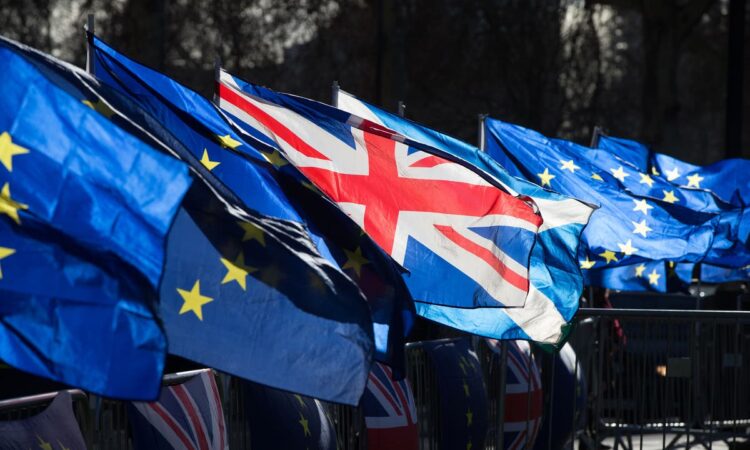
The government has refused to publish an estimate of the economic benefits of its latest planned Brexit trade deal.
Ministers had faced mockery over the small benefits to the economy expected from previous free trade agreements – with most giving tiny boosts to GDP.
But the Department for International Trade has now decided not to publish a figure for an enhanced agreement with Israel, arguing that it “isn’t appropriate”.
Opposition parties say the government should be more transparent about its trade talks and come up with an estimate – though economists say the benefits of the renegotiated deal could be difficult to measure.
When the government launched trade talks with the US in 2020 it revealed that it was expecting the agreement to provide just a 0.16 per cent boost to GDP by 2035 – the size of a forecast rounding error.
And its strategic case for a deal with New Zealand estimated a gain of “between 0.00 per cent and 0.01 per cent” in the long run, under the best scenario. These figures were set against an expected hit to GDP from leaving the EU of 4 per cent.
But official documentation for an enhanced trade deal with Israel released in November did not include a GDP figure. DIT has now confirmed to The Independent that it has no plans to release a figure.
“Time and time again, ministers are avoiding scrutiny and transparency on their trade policy – it’s little wonder when it isn’t delivering British businesses and communities,” said Labour shadow trade minister Gareth Thomas.
He said Labour in government “would ensure all trade deals are properly thought through and scrutinised, and that they would also work for all sectors and regions”.
And Sarah Green, the Liberal Democrats’ trade spokesperson, said that “if Conservative ministers have nothing to hide, they have nothing to fear” in publishing a number.
“The whole point of these deals is to help us trade with other countries. If there is no uplift to our GDP then why are we pursuing a deal? These figures should be published without delay,” she said.
Officials at DIT say they have not modelled the GDP impact of an improved UK-Israel free trade agreement for two principal reasons.
Firstly, the agreement is a revision of an already existing free trade agreement rather than a brand new deal; and secondly, the changes are only expected to cover specific sectors rather than all goods and services.
For previous agreements, government economists ran a so-called “computable general equilibrium” model which gave an expected impact across the whole of the economy.
Professor Michael Gasiorek, director of the UK Trade Policy Observatory at the University of Sussex Business School and co-director of the Centre for Inclusive Trade Policy, told The Independent that DIT’s reasoning “does make sense”.
“I think that there is too much of a focus on the overall impact of an agreement. It is perfectly possible that an agreement overall has very little impact – for example 0.1 per cent of GDP – but there may be some big losers and big winners underneath that,” he said.
“The overall figure only gives you the net effect. I have always argued and wanted the government to produce more disaggregated evidence from their modelling.”
UK news in pictures
Show all 50
Professor Gasiorek said it might also be the case that “modelling digital services and financial services is very difficult”, meaning results could be unreliable.
He said it was more important for the government to explain its “offensive asks” in the talks – exactly what it was asking Israel for in the deal – and what it was prepared to offer in return.
The planned Israel FTA is an enhancement of an agreement signed between the EU and Israel and rolled over with Brexit, though this fact has not featured prominently in government communications about talks.
The government says it wants to sign “a new, innovation-focused trade deal” focusing on services and digital sectors. Talks were launched in July by then trade secretary Anne-Marie Trevelyan.
A DIT spokesperson said: “A free trade deal with Israel will enhance our £5 billion trade relationship, and boost UK services exports to Israel by up to £78 million.
“As UK-Israel talks are focused on enhancing specific sectors that have rapidly growing demand, such as digital, technology and financial services, it isn’t appropriate to use the same modelling as we do for deals such as Australia and New Zealand.”






